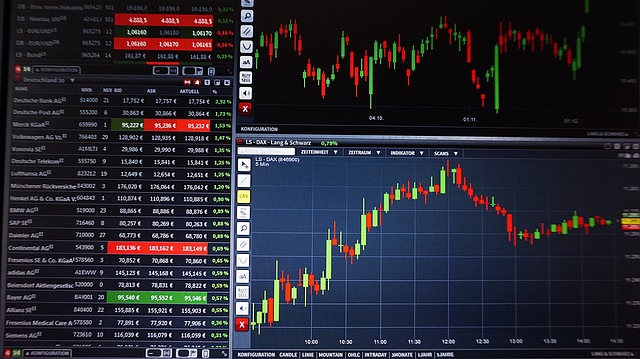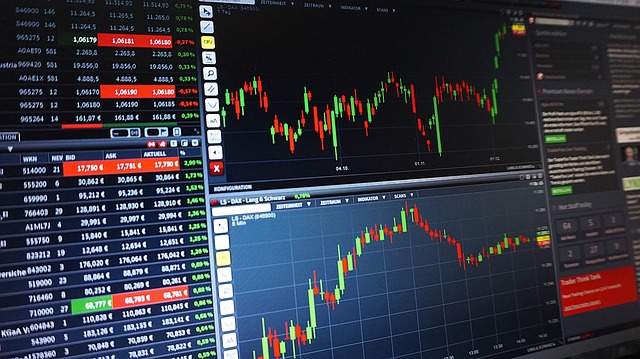The Rising Tide of Free Crypto Trading: A New Era for Investors
In recent years, the world of cryptocurrency has undergone a profound transformation. Technological advancements, regulatory changes, and an increasing appetite for digital assets among the general public have paved the way for burgeoning trading platforms that offer free or zero-commissions on trades. In this article, we will delve into the landscape of free crypto trading, exploring its implications, advantages, and potential pitfalls.

Understanding the Concept of Free Crypto Trading
Free crypto trading refers to platforms and exchanges that facilitate the buying and selling of cryptocurrencies without charging traditional commission fees. A variety of business models support this practice, including revenue from spreads, payment for order flow, advertisements, and cryptocurrency staking.
How Free Crypto Trading Works
Free trading might sound too good to be true. However, the mechanisms behind it are often quite sophisticated. Here are a few ways that platforms can offer free services:
- Zero-Commission Models: Many platforms have adopted a commission-free structure, which means they earn through the width of the bid-ask spread. This is the price difference between the buying (ask) and selling (bid) prices in the market.
- Payment for Order Flow: Some platforms receive compensation from third parties for directing orders to them. This practice, while contentious, allows them to offer trading without direct costs to their users.
- Staking Rewards: Certain cryptocurrency exchanges provide free trading by enabling customers to earn interest or rewards through staking their assets. This not only incentivizes users to hold their crypto but also generates revenue for the exchange.
The Appeal of Free Crypto Trading
The allure of free crypto trading is undeniable. For both new and seasoned investors, the opportunity to trade without incurring hefty fees presents significant advantages:
- Lower Barriers to Entry: Free platforms make it easier for beginners to enter the world of crypto investing, especially for those who might be daunted by traditional commission-based trading.
- Increased Trade Volume: When trading costs are eliminated, investors can execute more trades, which may help them capitalize on market volatility.
- Enhanced Portfolio Management: Without the constraints of trading fees, investors may find it easier to diversify their portfolio and manage risk.
Potential Drawbacks: What to Watch For
While free trading offers many benefits, it’s essential for traders to be vigilant and understand potential drawbacks. As is often the case with ‘free’ products, there could be unspoken costs that may affect user experiences.
Hidden Costs
Despite the initial appearance of no fees, some platforms might impose hidden costs in other ways:
- Wider Spreads: Since platforms might profit from the spread between buy and sell prices, traders could ultimately end up paying more than they would in commission fees.
- Slow Execution Times: Free services might prioritize user trading orders differently compared to fee-based models, potentially resulting in slower executions during significant price changes.
- Transfer Fees: While trading may be free, transferring crypto to other wallets or exchanges can come with fees that diminish overall profitability.
Privacy and Security Concerns
Investors should also be aware that many free trading platforms may rely heavily on user data for revenue. Investors must be cautious about sharing personal information, as security breaches can lead to devastating losses. Furthermore, the regulatory environment for free trading platforms is still evolving, leading to uncertainties about the long-term sustainability of these business models.
The Future of Free Crypto Trading
As technology evolves, the landscape of free crypto trading is set to change dramatically. Several factors will likely shape its trajectory:
Emphasis on Regulation
As cryptocurrencies gain in popularity, regulatory bodies are increasingly focusing on protecting investors. It’s crucial to be aware of potential regulation shifts that could affect how free trading platforms operate. Stricter regulations could either enhance the credibility of these platforms or create obstacles that may limit their growth.
Increased Competition
With the rapid emergence of free trading platforms, competition will likely intensify. This means better offerings for users, including enhanced features, reduced spreads, and improved user experiences. However, in a fierce competitive landscape, platforms that cannot maintain their profitability might struggle to stay afloat.

The Role of Technology: A Double-Edged Sword
Advancements in technology play a crucial role in facilitating free crypto trading. With improved algorithms and decentralized trading mechanisms gaining traction, the fine line between centralized exchanges and decentralized platforms will blur. This shift could revolutionize how trading occurs, creating opportunities while also posing new challenges.
The Advent of Decentralized Finance (DeFi)
Decentralized Finance, or DeFi, is an emerging sector within the crypto industry that allows users to trade, lend, and earn interest on assets without an intermediary. DeFi platforms often enable trading at little to no cost, leveraging smart contracts to automate processes. However, this space also carries its own set of risks, including smart contract vulnerabilities and liquidity issues.
Real-World Examples of Free Crypto Trading Platforms
Several platforms have emerged as leaders in the free crypto trading space. Here are a few notable examples:
Robinhood
While primarily known for stocks, Robinhood has made headway into the cryptocurrency market, allowing users to trade major digital assets with no commission fees. However, the platform has faced criticism for its payment for order flow practices and limited withdrawal options.
Binance
Binance offers a trading platform with low fees and several zero-commission trading options. As one of the largest exchanges globally, it is widely trusted but has also faced regulatory scrutiny in various jurisdictions.
Coinbase Pro
While Coinbase charges commissions for trades, Coinbase Pro offers an advanced trading platform with lower fees for active traders. It combines the benefits of a user-friendly interface with the appeal of lower costs.
Kraken
Known for robust security features, Kraken offers a user-friendly platform with competitive fees and enticing staking opportunities that can indirectly lower trading costs.
Conclusion: Navigating the Free Crypto Trading Landscape
The rise of free crypto trading platforms marks a significant milestone in the evolution of the cryptocurrency market. While these platforms do present incredible opportunities for users, investors must remain vigilant, understanding both the advantages and the potential pitfalls associated with these services. As the market continues to mature, so will the landscape of free trading, leading to endless possibilities for innovation.
Ultimately, it is crucial for every investor to carry out thorough research and understand their trading platforms before diving into the rapidly changing world of crypto trading. Free does not always mean better, and prudence is the best policy in this brave new digital frontier.